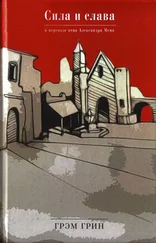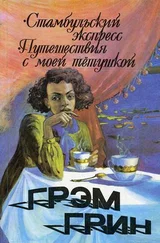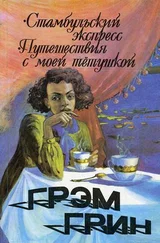Грэм Грин - The Comedians
Здесь есть возможность читать онлайн «Грэм Грин - The Comedians» весь текст электронной книги совершенно бесплатно (целиком полную версию без сокращений). В некоторых случаях можно слушать аудио, скачать через торрент в формате fb2 и присутствует краткое содержание. Год выпуска: 1966, Жанр: Классическая проза, на английском языке. Описание произведения, (предисловие) а так же отзывы посетителей доступны на портале библиотеки ЛибКат.
- Название:The Comedians
- Автор:
- Жанр:
- Год:1966
- ISBN:нет данных
- Рейтинг книги:3 / 5. Голосов: 1
-
Избранное:Добавить в избранное
- Отзывы:
-
Ваша оценка:
- 60
- 1
- 2
- 3
- 4
- 5
The Comedians: краткое содержание, описание и аннотация
Предлагаем к чтению аннотацию, описание, краткое содержание или предисловие (зависит от того, что написал сам автор книги «The Comedians»). Если вы не нашли необходимую информацию о книге — напишите в комментариях, мы постараемся отыскать её.
The Comedians — читать онлайн бесплатно полную книгу (весь текст) целиком
Ниже представлен текст книги, разбитый по страницам. Система сохранения места последней прочитанной страницы, позволяет с удобством читать онлайн бесплатно книгу «The Comedians», без необходимости каждый раз заново искать на чём Вы остановились. Поставьте закладку, и сможете в любой момент перейти на страницу, на которой закончили чтение.
Интервал:
Закладка:
'Why?' Mrs Smith demanded. 'It must be very inconvenient for everyone.'
'For economy,' the captain said. He added, 'The news on the radio tonight is not good. Rebels are said to have attacked across the Dominican border. The government claims that all is quiet in Port-au-Prince, but I would advise those of you who are stopping here to keep in close touch with your consulates. I have received orders to land passengers promptly and proceed at once to Santo Domingo. I am not to delay for cargo.'
'We seem to be hitting a spot of trouble, dear,' Mr Smith said from his end of the table and he took another spoonful of what I took to be Froment — a dish he had explained to me at lunch.
'Not for the first time,' Mrs Smith replied with grim satisfaction.
A sailor came in, bringing a message for the captain, and as he opened the door a breeze set the French letters asway; they whined where they touched. The captain said, 'You must excuse me. My duty. I have to go now. I wish you all a convivial evening,' but I wondered whether the message had been pre-arranged — he was not a sociable man and he had found Mrs Smith hard to accept. The chief rose too as though he feared to leave the ship alone in the captain's hands.
Now that the officers had gone, the purser became his old self again and he egged us on to eat more and drink more. (Even the Smiths after a good deal of hesitation — 'I am not a true gourmand,' Mrs Smith said — gave themselves a second' helping of Nuttoline.) A sweet liqueur was served which the purser explained was 'on' the company, and the thought of a free liqueur mesmerized us all — except, of course, the Smiths — into further drinking, even the pharmaceutical traveller, though he looked at his glass with apprehension as though green was the colour for danger. When eventually we reached the saloon a programme was lying on every chair.
The purser said gaily, 'Chins up,' and began to beat his hands softly on his plump knees as the orchestra entered, led by the cook, a cadaverous young man, with cheeks flushed by the heat of stoves, wearing his chef's hat. His companions carried pots, pans, knives, spoons: a mincer was there to add a grinding note, and the chef held a toasting-fork as a baton. In the programme the piece they played was called Nocturne, and it was followed by a Chanson d'Amour, sung by the chef himself, sweetly and uncertainly. Automne, tendresse, feuilles mortes, I could catch only a few of the melancholy words between the hollow crash of spoon on pot. Mr and Mrs Smith sat hand-in-hand on the couch, the rug spread over her knees, and the traveller in pharmaceutical products leant earnestly forward, watching the thin singer; perhaps with a professional eye he was considering whether any of his drugs might be of use. As for Mr Fernandez he sat apart, every now and then writing something down in a notebook. Jones hovered behind the purser's chair, occasionally leaning down and whispering in his ear. He seemed in the throes of a private enjoyment, as if the whole affair were his own invention, and when he applauded it was with a self-congratulatory glee. He looked at me and winked as much as to say, 'Just you wait. My imagination doesn't stop here. There are better things yet to come.'
I had meant to go to my cabin when the song was over, but Jones's manner awoke my curiosity. The pharmaceutical traveller had already disappeared, but I remembered it was past his usual bedtime. Jones now called the leader of the orchestra into conference: the chief drummer joined them with his big copper saucepan under his arm. I looked at my programme and saw that the next item was a Dramatic Monologue by Mr J. Baxter. 'That was a very interesting performance,' Mr Smith said. 'Didn't you find it so, my dear?'
'The pots were serving a better purpose than cooking an unfortunate duck,' Mrs Smith replied. Her passions had not been perceptibly weakened by the removal of acidity.
'Very nicely sung, wasn't it, Mr Fernandez?'
'Yes,' said Mr Fernandez and sucked the end of his pencil.
The pharmaceutical traveller entered wearing a steel helmet — he had not gone to bed, but had changed into a pair of blue jeans and had a whistle clenched between his teeth.
'So that's Mr Baxter,' Mrs Smith said in a tone of relief. I think she disliked mysteries; she wanted all ingredients of the human comedy marked as precisely as one of Mr Baxter's drugs or the label on the bottle of Barmene. The pharmaceutical traveller could easily have borrowed the blue jeans from a member of the crew, but I wondered how he had obtained his steel helmet.
Now he gave a blast of his whistle to silence us, though only Mrs Smith had spoken, and announced: 'A Dramatic Monologue entitled "The Warden's Patrol".' To his obvious dismay a member of the orchestra reproduced an air-raid siren.
'Bravo,' Jones said.
'You should have warned me,' Mr Baxter said. 'Now I'm off my cue.'
He was interrupted again by a roll of distant gunfire produced on the bottom of a frying-pan.
'What's that supposed to be?' Mr Baxter demanded angrily.
'The guns in the estuary.'
'You are interfering with my script, Mr Jones.'
'Proceed,' Jones said. 'The overture is over. The atmosphere is set. London 1940.' Mr Baxter gave him a sad hurt look and announced again, 'A Dramatic Monologue entitled "The Warden's Patrol" composed by Post Warden X' Holding his palm over his eyes, as though to ward off falling glass, he began to recite.
'The flares came down over Euston, St Pancras,
And dear old Tottenham Road,
And the warden walking his lonely beat
Saw his shadow like a cloud.
'Guns in Hyde Park were blasting away
When the cry of the first bomb came,
And the warden shook his fist at the sky
As he mocked at Hitler's fame.
'London will stand, St Paul's will stand,
And for every death we have here,
A curse will arise from a German heart
Against their devilish Fuhrer.
'Maples is hit, Gower Street's a ghost,
Piccadilly's alight — but all's well.
We'll use our ration of bread for toast,
For the blitzkrieg's dead in Pall Mall.'
Mr Baxter gave a blast on his whistle, came sharply to attention, and said,'The all-clear has sounded.'
'And none too soon,' Mrs Smith replied.
Mr Fernandez cried excitedly, 'No, no. Oh no, sir,' and I think with the exception of Mrs Smith there was general agreement that anything coming afterwards would be in the nature of an anti-climax.
'That calls for more champagne,' Jones said. 'Steward!'
The orchestra went back to the kitchen except for the conductor who stayed at Jones's request. 'The champagne's on me,' Jones said. 'You deserve a glass if any man did.'
Mr Baxter sat down suddenly beside me and began to tremble all over. His hand beat nervously on the table. 'Don't mind me,' he said, 'it's always been this way. I get my stage-fright afterwards. Would you say that I was well received?'
'Very,' I said. 'Where did you find the steel helmet?'
'It's just one of those things I carry around in the bottom of my trunk. Somehow I've never parted with it. I expect it's the same with you — there are things you keep …'
It was true enough: they were more portable objects than a steel helmet, but they were just as useless — photographs, an old postcard, a membership receipt long out of date for a nightclub off Regent Street, an entrance-ticket for one day to the casino at Monte Carlo. I was sure I could find half a dozen such if I turned out my pocket-book. 'The blue jeans I borrowed from the second officer — but they have a foreign cut.'
'Let me pour you out a glass. Your hand is still trembling.'
'You really liked the poem?'
'It was very vivid.'
'Then I'll tell you what I've never told anyone before. I was Post Warden X. I wrote it myself. After the May blitz in '41.'
Читать дальшеИнтервал:
Закладка:
Похожие книги на «The Comedians»
Представляем Вашему вниманию похожие книги на «The Comedians» списком для выбора. Мы отобрали схожую по названию и смыслу литературу в надежде предоставить читателям больше вариантов отыскать новые, интересные, ещё непрочитанные произведения.
Обсуждение, отзывы о книге «The Comedians» и просто собственные мнения читателей. Оставьте ваши комментарии, напишите, что Вы думаете о произведении, его смысле или главных героях. Укажите что конкретно понравилось, а что нет, и почему Вы так считаете.



